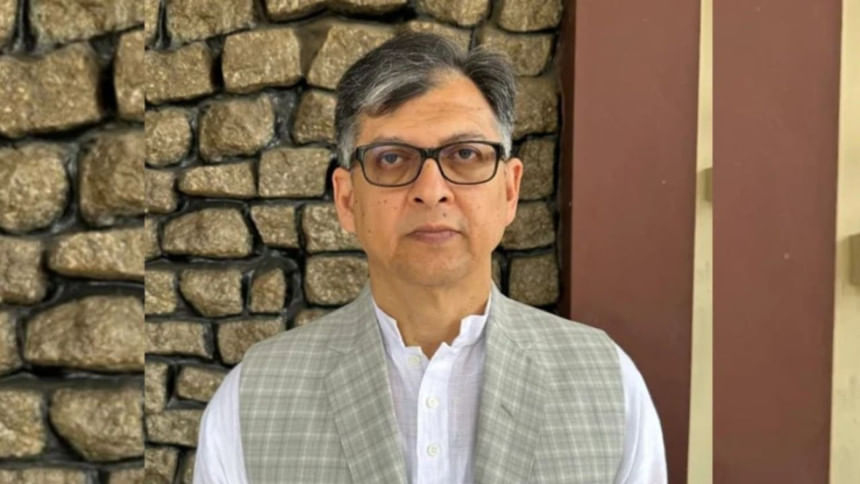Yunus himself violated July charter

Chief Adviser Muhammad Yunus has violated the July National Charter through his outlines on the implementation of the charter in his speech to the nation, said BNP Standing Committee member Salahuddin Ahmed yesterday.He said he objected to four proposals of the referendum ballot, the plan to form a Constitutional Reform Council, create a 100-member upper house and the legitimacy of the President issuing the implementation order.There are many additions in the order issued yesterday, he said, add...
Chief Adviser Muhammad Yunus has violated the July National Charter through his outlines on the implementation of the charter in his speech to the nation, said BNP Standing Committee member Salahuddin Ahmed yesterday.
He said he objected to four proposals of the referendum ballot, the plan to form a Constitutional Reform Council, create a 100-member upper house and the legitimacy of the President issuing the implementation order.
There are many additions in the order issued yesterday, he said, adding that several proposals were added based on what the authorities personally preferred.
"Maybe some groups will be happy with this. But the question is, instead of creating unity in the state, are we going to create disunity? Are we going to create a division? And will the honourable chief adviser take responsibility for this division?" he told the reporters at his Gulshan residence after CA's speech.
The Chief Adviser himself signed the July Charter. In his speech, he violated the charter by including matters beyond the signed charter and adding new elements that were not mentioned in it.
"If we analyse his speech alongside the signed charter, we will see that he has grossly breached it."
Holding the referendum on the day of the national election is acceptable, but the process is flawed because voters cannot vote on the four proposals separately, he said.
"There is only one question about four things -- that means it is a leading question. There is no option to say yes or no to each point separately. People are being forced to agree to all four proposals or not to any of them."
The referendum asks voters to decide on four key proposals, but the topics themselves remain highly controversial.
One of the proposals is the formation of the upper house of the parliament in proportion to the votes received by the voters.
"That part is imposed here by force. Many of the questions being asked are outside the signed Charter."
Salahuddin also questioned the legitimacy of forming a constitutional reform council.
"This was not on the agenda of the Consensus Commission -- it was not discussed at all. So, there was no question of reaching any agreement on it."
Constitutional changes cannot be made by indirectly elected or non-elected members.
"This is because the sovereign parliamentary authority belongs to the MPs and the parliament, which is formed by the sovereign people. That means the members elected by the people, who carry the people's sovereign power, represent the sovereign parliament. And because of that, they have the authority over everything, including amending or revising the constitution and making laws. This authority never belongs to any non-elected body or council."
The Election Commission, which is constitutionally tasked with conducting the national election, will oversee the polls. Those elected will take oath through the proper parliamentary process.
"It is being proposed that they will also take an oath as members of the Constitutional Reform Council in the same way. Were they elected as members of the Constitutional Reform Council that they would take such an oath? So these ideas are new."
He also questioned the legitimacy of that council functioning concurrently with the national parliament and finalising the constitutional reforms within 180 working days from its first sitting.
He questioned whether forming such a council would interfere with the parliament's own authority and its sovereign powers.
"If we want to form a Constitutional Reform Council, then the constitution has to be changed first and the Election Commission must be given that power. The question is, are we creating a new state that we need to form such a body?"
Such a council was formed at the time of independence as a new nation was being formed.
"But the state of Bangladesh has been in existence all this while. So, all the ideas that are being imposed are conflicting."
Salahuddin also criticised the proposal to form an upper house in the parliament based on the proportion of votes received. Any amendment to the Constitution will require the approval of a majority of the upper house.
"This is a new proposal that was never agreed upon during the National Consensus Commission's discussions."
The only point discussed earlier was the formation of a 100-member upper house, but there were differing opinions.
"Introducing it now is a clear violation."
Salahuddin also questioned the president's authority to issue such an order.
While the president has the authority to issue ordinances, he does not have the constitutional power to issue an order of this kind.
"There is now a question about how much legal validity this order actually has," he said, adding that such questions would not have arisen if it had been a simple notification or a gazette circular.